
A COVID-19 victim is cremated in Lommel, Belgium. /Francisco Seco/AP Photo
A COVID-19 victim is cremated in Lommel, Belgium. /Francisco Seco/AP Photo
"Never again" is easier said than done. In an interconnected world, there is simply no way of ensuring pandemics cannot happen – especially if they have the right combination of communicability (high) and mortality (not very high or at least not very quickly), and specifically if, like COVID-19, they hide their symptoms until well after their contagious period has started.
However, learning lessons is possible – imperative, even. And while the world's reaction to COVID-19 can hardly be qualified as a roaring success, it might be worth remembering the words of the campaigning Victorian-era author Samuel Smiles: "We learn wisdom from failure much more than from success. We often discover what will do by finding out what will not do; and probably he who never made a mistake never made a discovery."

The pyramids light up outside the Egyptian capital of Cairo. /Khaled Desouki/ AFP Photo
The pyramids light up outside the Egyptian capital of Cairo. /Khaled Desouki/ AFP Photo
We're looking at potentially early January or even late December when coronavirus could have already been spreading within the U.S.
- Leana Wen, former Baltimore City health commissioner
Don't play the blame game
One of the first questions to be asked is where a pandemic originated. One of the key learnings is not to jump to conclusions. Because the "unusual flu" that came to be known as COVID-19 was first documented and reported to officials in Wuhan, China, many people across the world, including U.S. President Donald Trump, felt empowered to call it the "Chinese disease."
However, many scientists are saying that the disease was already creeping across the world before a cluster was reported in Wuhan. This lack of understanding of how viruses spread and the implications of globalization meant that many countries closing their borders didn't entertain the idea that the virus was already in their country, or that it might already be prevalent in a third country with unfettered access.
The U.S. did not investigate when a 57-year-old, normally fit patient died in Santa Clara County on 6 February of a 'strange pneumonia' – despite the headlines coming out of China and the warnings from the World Health Organization (WHO). That death has now been confirmed as the first known COVID-19 death in the United States.
READ MORE First U.S. COVID-19 death came as early as 6 Feb: New autopsy result
"We're looking at potentially early January or even late December when coronavirus could have already been spreading within the U.S.," the former Baltimore City health commissioner Leana Wen told CNN. "I'm worried that it's not just in California: there might be community spread in many parts of the country that we are not detecting because we simply don't have the testing."
The first mistake the world had made was to assume it was a problem for China and the countries immediately surrounding it. This was a fatal assumption, as Wen points out: "We could be seeing an explosive spread in many parts of the country out of the blue, there could be many more epicenters in a way that we had not anticipated."
READ MORE Trump's move to cut WHO funding prompts world condemnation

Volunteer nurses from the American Red Cross tend to "Spanish flu" patients in the Oakland Municipal Auditorium, used as a temporary hospital. /Edward A. "Doc" Rogers/ Library of Congress via AP.
Volunteer nurses from the American Red Cross tend to "Spanish flu" patients in the Oakland Municipal Auditorium, used as a temporary hospital. /Edward A. "Doc" Rogers/ Library of Congress via AP.
In 1918, a lethal outbreak of influenza became known as the Spanish flu because it was first widely reported in Spain. As it turned out, the very first documented cases were in Kansas, U.S. – but the origin didn't matter nearly as much as the destination. That flu eventually killed up to 50 million people worldwide (5 percent of the world's population at that time), and its spread was aided by the great global mobilization of people as World War I ended.
Just over a century later, that movement of people is an everyday reality in a globalized economy, but it seems that we haven't learned the crucial lesson: Don't ask where it came from, ask where it's going.
In January 2020, the media story was about the disruption to the enormous annual mobilization of people back to their family homes for the Chinese Spring Festival as they went into lockdown; with hindsight, might we not also have considered the potential threat of the great mobilization of people back from Asia for the Christmas holidays?

An electric screen displaying coronavirus precautions in Seoul, South Korea. /Ahn Young-joon/AP Photo
An electric screen displaying coronavirus precautions in Seoul, South Korea. /Ahn Young-joon/AP Photo
The first answer isn't always the best answer
Ebola and SARS were linked to the problem of humans coming into contact with wildlife in markets. The bushmeat trade in Africa and the exotic meat trade at markets across Asia were quickly suspected to be the cause of the outbreaks. It is probably worth noting that these trades are foreign to Western culture, which can lead to some unfortunate assumptions.
We now know that other cases occurred completely independent of the market and are now being traced back, some up to 150 kilometers away
- Richard Kock of the Royal Veterinary College, UK
An early investigation into the first 41 cases of what came to be known as COVID-19 showed that just over half had been exposed to the Huanan seafood market in Wuhan. Not entirely unreasonably, this led to the assumption that the outbreak started there – spread to humans either via fishmongers or via other wild animals available at the market.
However, "just over half" is hardly the strongest correlation, let alone causation. A study by Chinese researchers published in The Lancet demonstrated the first patient presented symptoms consistent with COVID-19 on 1 December, much earlier than most cases – and that the patient had no exposure to the market. Although it is beyond doubt that Wuhan is the original epicenter of the outbreak that changed the world, continuing research suggests that the story may not be as simple as was first presented.
"We now know that other cases occurred completely independent of the market," Richard Kock of the UK's Royal Veterinary College told CGTN, "and are now being traced back, some up to 150 kilometers away. So I think a much more rational reason for this is that over time there's been an increase in this virus in an amplifying host."

Residents wearing masks against the coronavirus walk past reeds and the cityscape along the Yangtze River in Wuhan in central China's Hubei province. April 2020. /Ng Han Guan/AP Photo
Residents wearing masks against the coronavirus walk past reeds and the cityscape along the Yangtze River in Wuhan in central China's Hubei province. April 2020. /Ng Han Guan/AP Photo
Respect wildlife
Study into the origin of the disease has been helped by the rapid sequencing of the genome – China's Center for Disease Control released the sequence on 10 January. On 17 March, research published at Nature.com strengthened a suggestion first made by scientists Yongyi Shen and Lihua Xiao at the South China Agricultural University in Guangzhou on 7 February: the intermediate host might be the pangolin, a small scaly anteater which also carries coronaviruses.

A pangolin carries its baby at a zoo in Bali, Indonesia. June 2014. /Firdia Lisnawati/AP Photo.
A pangolin carries its baby at a zoo in Bali, Indonesia. June 2014. /Firdia Lisnawati/AP Photo.
Despite popular attempts to preserve it (notably by Chinese megastar Angelababy), the pangolin remains one of the world's most trafficked animals: its meat is regarded as a delicacy and its scales are used in traditional Chinese medicine. COVID-19 might save it, though: in January, a Chinese state health insurers ban on remedies made from pangolin scales came into force and on 24 February, China announced a ban on eating and trading many wild animals including pangolins.
It's not the fault of the animals, it's the fault of the humans. We have to recognize our limits, and we've hit a limit now in terms of our exploitation of nature
- Richard Kock of the Royal Veterinary College, UK
However, the issue – and the learning – is wider than the pangolin, or even the increasingly ostracized trade in exotic meats. As globalization and commercialization pushes humans into closer contact with wildlife in very many places around the world, questions are being asked about the extent to which we are encroaching on natural habitats – and whether coronaviruses are the corollary to habitat destruction. In other words: it's on our plate because we ordered it.
"Exploitation of wildlife through hunting, capture and wildlife trade are especially high risk," says Christine Kreuder Johnson, professor of veterinary medicine and epidemiology at UC Davis in California. "Animals are being sold in markets where animals and people mix, and it's really crowded and there's a lot of close contact. That's the perfect epidemiologic setting for viruses to jump between diverse species and eventually infect humans."
Or as Richard Kock puts it: "It's not the fault of the animals, it's the fault of the humans. We have to recognize our limits, and we've hit a limit now in terms of our exploitation of nature."
READ MORE China's top legislature reviews draft laws on animal epidemic prevention for first time

A man wearing a face mask walks in front of a mural at the Leishenshan Hospital in Wuhan, China April 2020. /Noel Celis/AFP
A man wearing a face mask walks in front of a mural at the Leishenshan Hospital in Wuhan, China April 2020. /Noel Celis/AFP
Listen to learn, learn to listen
The open platform of the internet has fundamentally changed communication, the media and society – for better and worse. Anyone can publish an opinion and send it anywhere in the world, and it seems like almost everyone does. Social media gives everyone a swift and deceptively legitimate platform to air their grievances – leading to a tidal wave of misinformation, disinformation and conspiracy theories raging unchecked.
Many people have simply stopped listening to anyone that disagrees with their chosen narrative – reinforced by the social-media algorithms turning a feedback loop of "likeable" content into self-strengthening echo chambers. Scientists, politicians and academics have had their authority stripped and conclusions questioned under the catch-all delegitimizing phrase "fake news". Medicine has been undermined as the internet touted alternative cures for cancer and the anti-vaxxers movement threatened to undo decades of work eradicating killer diseases.

Police officers detain a protestor, during an illegal demonstration against restrictions in Berlin, Germany 25 April. The poster reads, "Intimidated disenfranchised remote controlled from thinker to a data donor." /Markus Schreiber/AP Photo
Police officers detain a protestor, during an illegal demonstration against restrictions in Berlin, Germany 25 April. The poster reads, "Intimidated disenfranchised remote controlled from thinker to a data donor." /Markus Schreiber/AP Photo
I spent 28 years in government service, a lot of it planning for this type of event; I'm not sure where those plans have gone to. We have to rebuild the trust in science and you have to be able to disengage the politics
- Boris Lushniak, former U.S. acting Surgeon General
When the pandemic came, scientists' warnings went unheard in the social media din of populist politics that had gripped the West; afraid of the potential backlash from the unmanageable online mob, many governments hesitated to take action, while the mainstream media in some countries went to war with itself.
"I spent 28 years in government service, a lot of it planning for this type of event," former U.S. acting Surgeon General Boris Lushniak told CNN. "What really perplexes me is, I'm not sure where those plans have gone to: they've not been fully implemented. In essence, we have to rebuild the trust in science and you have to be able to disengage the politics."
These are painful lessons to learn but when a pandemic comes science, governance and communication should be your most effective weapons, without which you cannot win. Will this pandemic teach people to put their faith in science and expertise again?
READ MORE Trump's move to cut WHO funding prompts world condemnation

Counter-protesting caregivers face a protester rallying to 're-open' Arizona, April 2020. /Ross D. Franklin/AP Photo
Counter-protesting caregivers face a protester rallying to 're-open' Arizona, April 2020. /Ross D. Franklin/AP Photo
It wasn't all bad
With up to a third of the world's population retreating indoors, many places saw a resurgence of local wildlife: an unexpected and rapid return of animals, birds and fish, especially to areas of natural beauty that are usually awash with day trippers.
One tourist hotspot normally teeming with people over Easter break is the popular Welsh seaside town of Llandudno – but since lockdown a very different sort of visitor has emerged: its empty streets have clattered to the sound of caprine hooves as a herd of 120 or so Kashmiri goats have been tempted down from the adjacent limestone crags.
READ MORE Pumas, goats, monkeys and more take advantage of COVID-19 lockdown
00:58
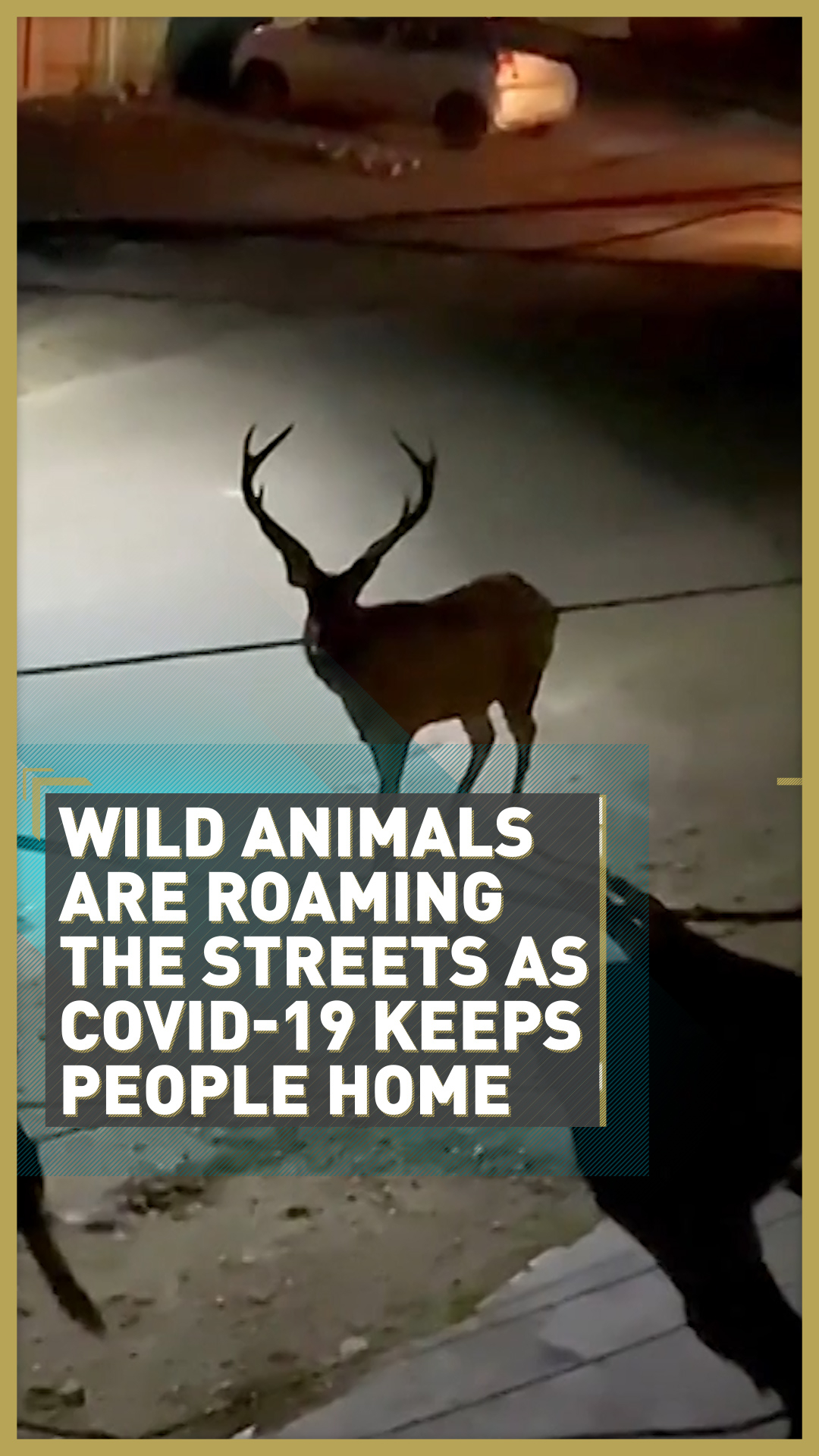
Tourism is a mixed blessing – a fiscal boon but an environmental strain and, in some cases, a dependency. In Thailand, monkeys that had learned to be fed by tourists were left starving and menacing the locals; however, many other places around the world flourished in the unusual absence of humans.
A fine example was Venice, one of the world's busiest tourist magnets. Usually co-existing with half a million visitors per week, the residents are hurting financially but they are seeing a side to their city that they didn't know existed.
Venetians are questioning how they can create a balance between respecting the environment, and reviving the economy once the crisis is over
- Georg Umgiesser, senior scientist at the Venice Institute of Marine Sciences
Air pollution is down and the canals have cleared due to the lack of motorized boats churning up the water; animals are coming out, birds are singing and fish are swimming in the canals – even if original reports of dolphins swimming the canals turned out to be a hoax spread by wishful thinking.
Although they hope to welcome the tourists back soon, the locals are loath to lose this ecosystem when "normal life" resumes. "In a certain way it's romantic, it's beautiful, on the other side it's an economic disaster," Georg Umgiesser, senior scientist at the Venice Institute of Marine Sciences, told CGTN. "Now Venetians are questioning how they can create a balance between respecting the environment, and reviving the economy once the crisis is over."
For Sebastian Fagarazzi, that balance is achievable but might require some tough choices: "You can optimize the fact that more animals, more fish, more birds will be in Venice, and they will have a good life as well as the Venetians. We would also like to have a good life in Venice and not be oppressed by tourists."
Fagarazzi is the co-founder of Venezia Autentica, an organization striving to ensure tourism contributes to Venetian life instead of harming it. "If you come with a ship that pollutes a lot and you only stay for a couple of hours, you contribute to the pollution and you don't help the local economy."
Once the crisis is over, it will take time for the city to recover financially, but ways to preserve the current peaceful environment will likely also be on the agenda for many Venetians.
READ MORE Venice: 'A romantic disaster' in the midst of COVID-19
03:14
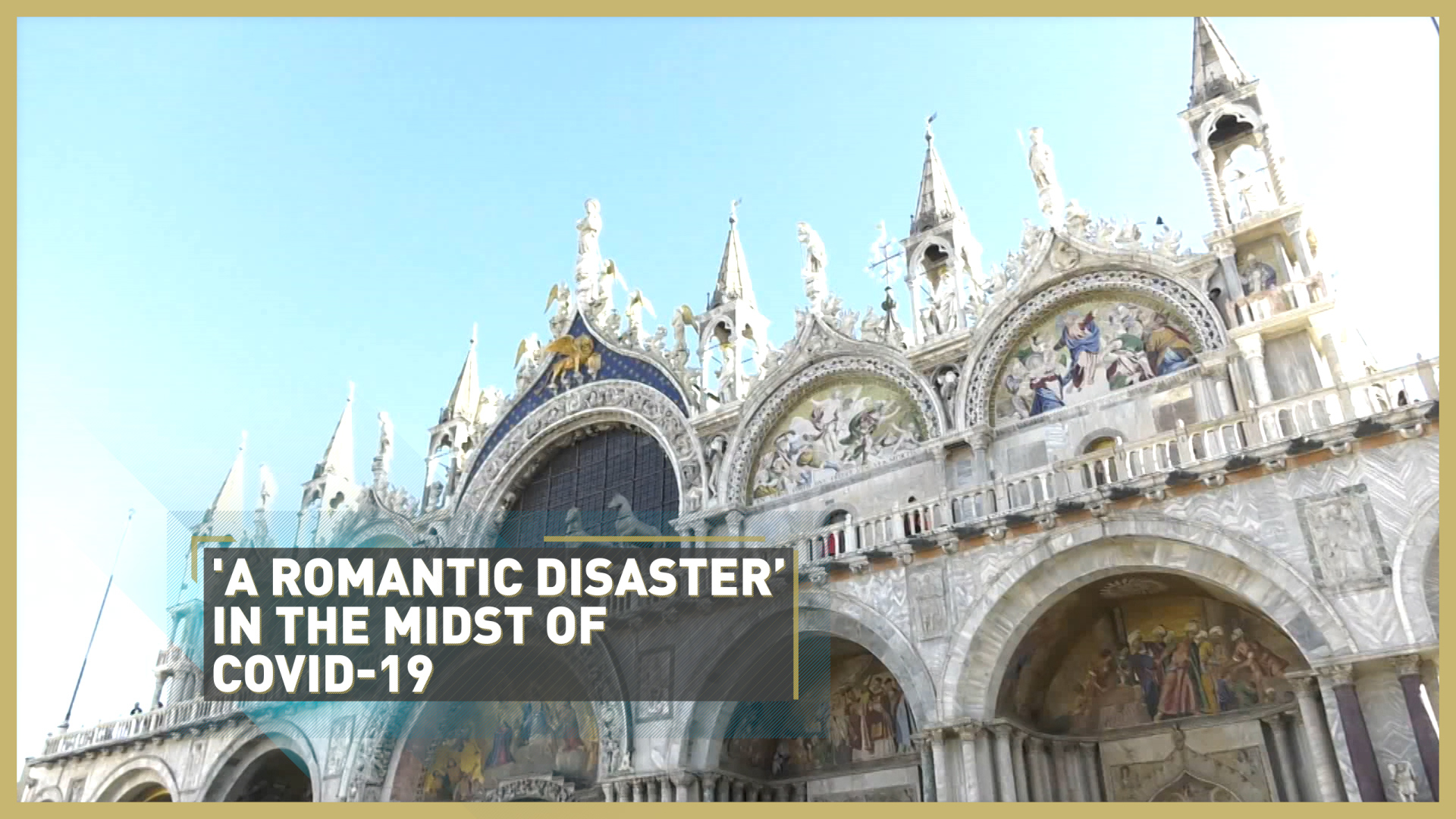
It's not necessarily better to travel
Venice will not be alone in seeking this balance. The temporary but widespread absence of tourism has been economically crippling but in many ways has reminded locals why their corner of the world is a popular destination.
Mass tourism will return to a greater or lesser extent, but a greater question hangs over business travel. A few months ago, many might have thought that Greta Thunberg and Extinction Rebellion protestors had a better point in principle than in practice: sure, it would be nice if we didn't have to travel for work, but we have to. Right?
Wrong, judging by the rather blunt instrument of an enforced lockdown. Those international conferences will have lost their allure as a forum to spread ideas and gained a fearsome possibility of a petri dish to spread pandemics. And the end of lockdown might not mean an immediate return to glad-handing in Gdansk and backslapping in Barcelona: with business taking an unavoidably massive hit that will take recovery time, the reduced budget might not be best spent on sending a middle manager for a weekend away.
True, there will always be some work that cannot be carried out remotely, but the widespread adoption of video conferencing and homeworking has forced a change in working methods. For many people, the daily commute is expensive, time-consuming, frustrating, environmentally unsound and detrimental to physical and mental health – as well as enforcing certain domestic choices of childcare and location.
READ MORE Pollution crisis: The Balkans' breathing problem
01:39
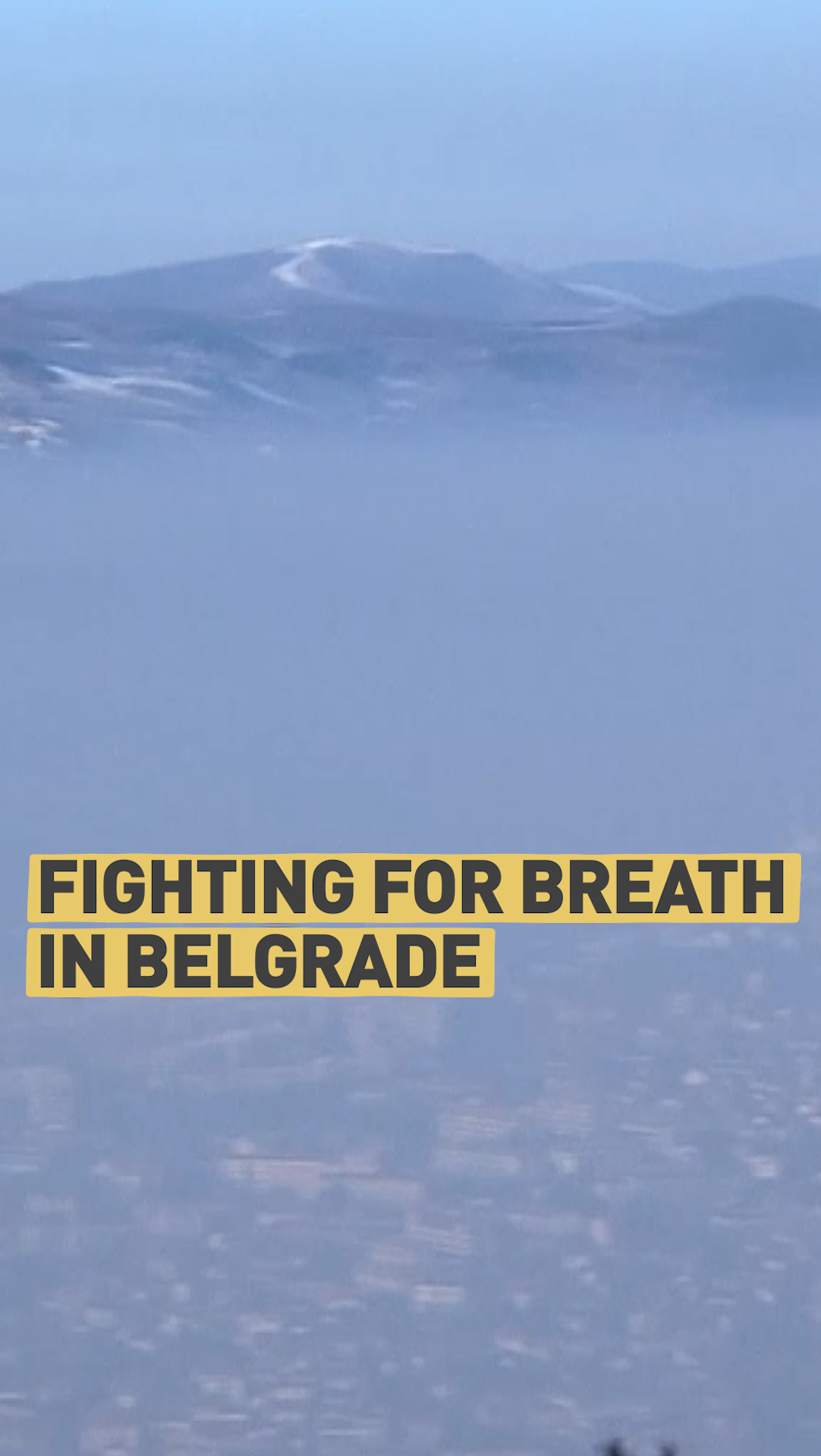
In the modern economy, many jobs are more closely linked to management and ideation than production; even the production is now in many cases easily done remotely. By trusting staff to work from home (while maintaining their output), managers might even get more out of them, by eliminating the need to commute through our choked cities.
There is a balance to be struck: homeworking can be isolating, which has its own effects on mental health and productivity, while teamwork is also improved by regular close contact. But the model that has been in place for centuries, since the industrial revolution took people from the country to the town – that we travel to some sort of "manufactory," and work under the boss's eye – seems old-fashioned and unsuitable for the future. Given the potential benefits, might we see governments giving tax breaks to home-working "environment days"?
Community can be therapy
A threat can be divisive or unifying. As the enormity of the pandemic began to sink in, many people were inspired to help fight the disease. As the vulnerable stocked up to hunker down in isolation for up to three months, many others started organizing.
Thousands of Facebook groups we created to help their communities. Small armies of volunteers have been recruited across the world to help those in isolation and support the health workers on the frontline.

Volunteer Einat Kedem delivers a home-cooked meal to emergency room doctor Maayan Bacher in the Israeli city of Raanana. /Sebastian Scheiner/AP Photo
Volunteer Einat Kedem delivers a home-cooked meal to emergency room doctor Maayan Bacher in the Israeli city of Raanana. /Sebastian Scheiner/AP Photo
In Israel, more than 10,000 people have responded to Adi Karmon Scope's Facebook plea to help overworked healthcare professionals on the frontline. They do grocery shopping, deliver home-cooked meals, babysit children and walk pets.
In the UK 750,000 people volunteered to help the NHS. More than a million people joined 300 Facebook groups ready to help. In three weeks they mobilized and organized to provide those in isolation with essentials such as food and prescription drugs.
READ MORE UK 'army of volunteers' helps their communities during lockdown
03:04
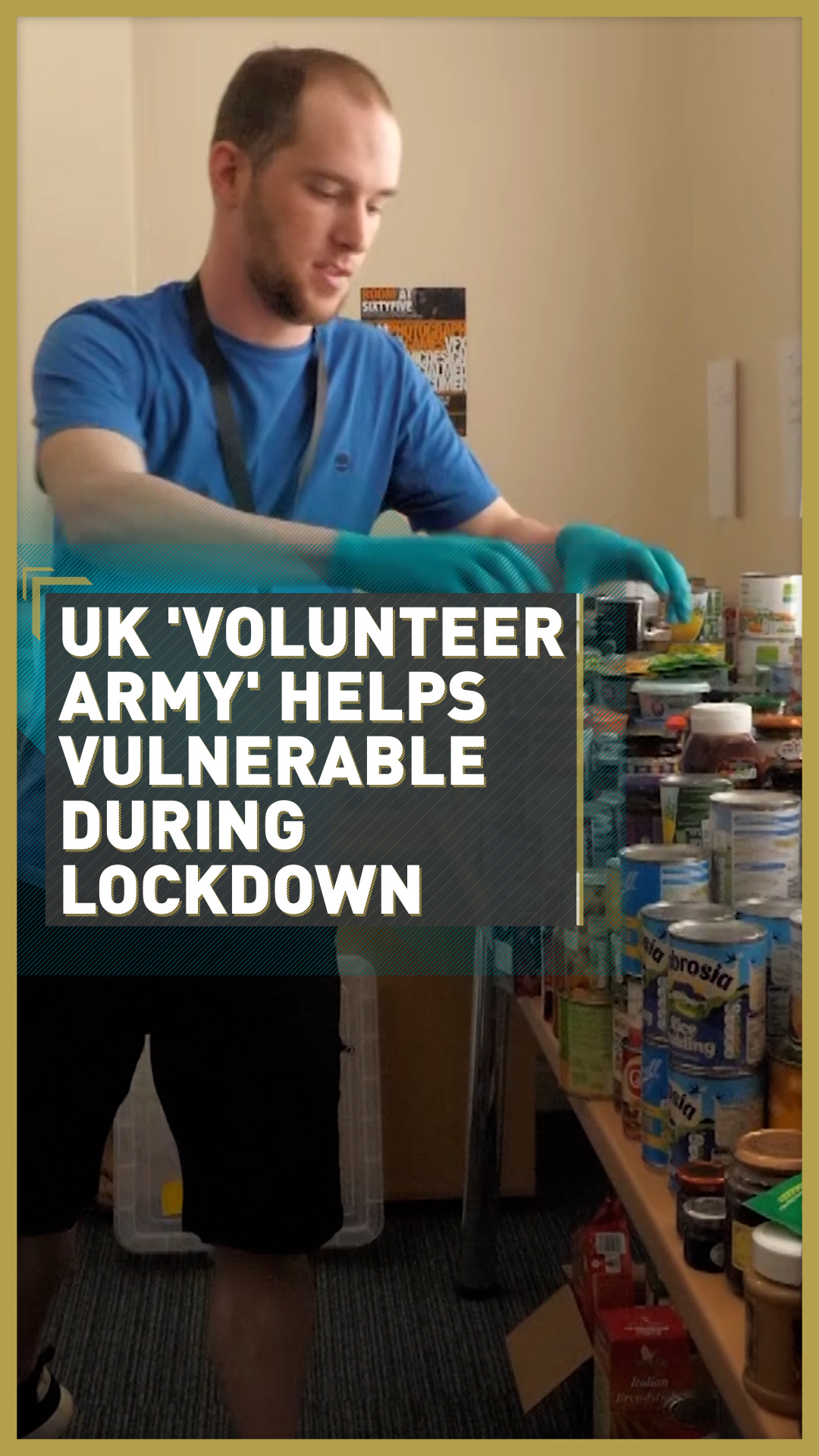
Collaboration hasn't only happened at the community level. Ending the pandemic has brought scientists together for a common cause. The World Health Organization has recruited experts from China, Canada, the U.S., Europe, Africa, Japan, South Korea and Argentina for "unprecedented worldwide collaboration, cooperation and sharing of data... we will work tenaciously to increase the likelihood that one or more safe and effective vaccines will soon be made available to all."
READ MORE Global leaders launch WHO plan to beat COVID-19, U.S. not involved
02:27
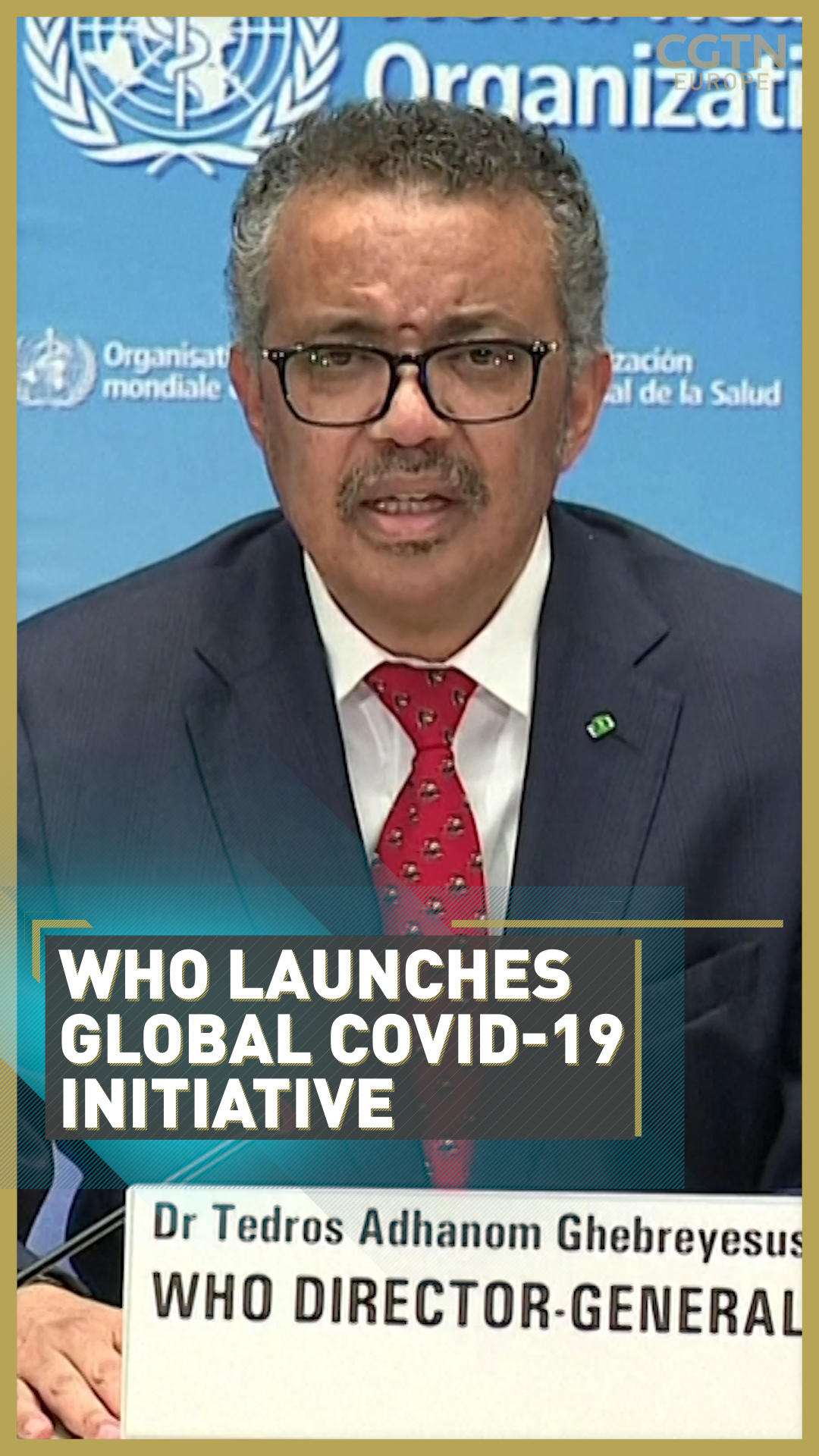
Simply 'rewinding' globalization and re-shoring supply chains is neither desirable or possible. We must build a more resilient form of globalization
- Wang Huiyao, the president of the Center for China and Globalization
Business must work together
The blame game has started, quite naturally: it's the easiest path for those proven unable to deal with the pandemic. People are shocked and angry and want answers from their governments. But in a globalized world, nobody wins from human disaster or economic collapse.
The global economy is now completely interdependent and interlinked. The crisis in PPE and medical equipment has highlighted the problem in supply chains, but a multitude of goods are not getting shipped around the world. No economy is an island, so no one is coming out of this in better shape: the most successful economies are still dependent on importing and exporting from other nations to create or sell their products.
The COVID-19 pandemic has badly damaged global trade and there will be fallout for business and consumers everywhere. Germany and China appear to have limited the damage to their populations, but their livelihoods depend on exporting their products worldwide – so if other countries are unable to contain the virus and their populations are left in rolling lockdowns, jobs will be lost and no one will be able to buy any goods.
"COVID-19 has again shown the fragilities of our global system," Wang Huiyao, the president of the Center for China and Globalization, told CGTN. "But simply 'rewinding' globalization and re-shoring supply chains is neither desirable or possible. Instead, we must build a more resilient form of globalization, one that retains the benefits of interconnectedness, while enhancing safeguards and response capabilities – so we are ready for the next big challenge."
READ MORE COVID-19 is a call for a resilient globalization

Workers assemble cars at the Dongfeng Honda Automobile factory in Wuhan in central China's Hubei province, April 2020. /Ng Han Guan/AP Photo
Workers assemble cars at the Dongfeng Honda Automobile factory in Wuhan in central China's Hubei province, April 2020. /Ng Han Guan/AP Photo
Until the pandemic comes under control, business travel and tourism will be disrupted. In fact, just about everything will be disrupted. The oil industry, that 20th-century icon of wealth and power, has had a heart attack with a barrel of oil entering negative territory for the first time ever.
These are unprecedented times: the WHO is warning of "great famines" and the International Monetary Fund (IMF) managing director Kristalina Georgieva has noted "Never in the history of the IMF have we witnessed the world economy coming to a standstill." Nations need one another to smooth trade, give and receive aid and listen to their scientists as they work together to find a path out of the mess. The way forward is not blame but collaboration.